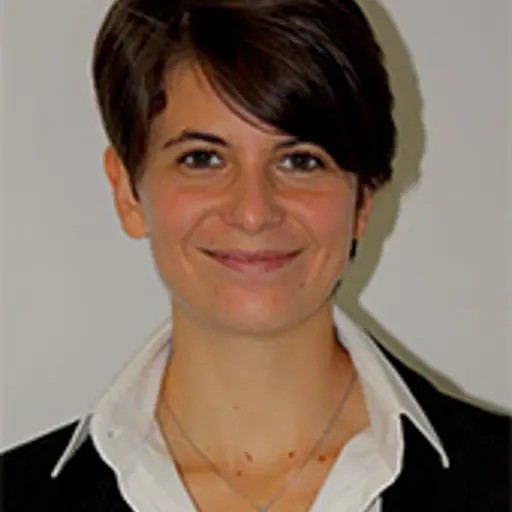
Cybersecurity is a constantly urgent topic, and it is becoming increasingly important in line with the increasing digitalization of society. Chalmers University of Technology has identified cryptography as a fundamental skill in the area of cybersecurity and started the Crypto Team last fall. Head of this team is Elena Pagnin, Assistant Professor at Chalmers. She is also one of the speakers at the initiative seminar Navigating the Cybersecurity landscape hosted by Chalmers Information and Communication Technology Area of Advance (ICT) in October.
How a young Italian student ended up as a researcher in Gothenburg - via Singapore
Actually, Elena was always a researcher ever since she was a child. The engineering approach has always been there, trying to find out new ways to do things. At university she chose Mathematics as she liked logics and how to reason – that there are several ways to prove what is true and what is false. When it was time to find a job, the idea of working at a university came up. “It can’t be too bad. Let’s try it! At least I can use my brain.”
After doing her Master thesis in Singapore she was offered a position there. But, as it is a small country and she had already explored all of it, she wanted to see something else. She got a tip about an interesting position at Chalmers University of Technology in Gothenburg, applied for it and got it. So that’s how she ended up in the cold north instead of the sunny Mediterranean or Southeast Asia.
Cryptography is the guarantee to ensure confidentiality and integrity of digital information
As the society gets more and more digitalized, the need for balancing privacy and security is increasing in a rapid way. The need to make sure that anything you read, see or download is actually coming from the right source and not fake news. Or that the person who is signing into a system or a bank account really is entitled to do this. Here, cryptography has an important role for the cybersecurity, says Elena. “And the research in the field must be long term, to be able to imagine what the next challenge might be.
“In my perspective”, Elena continues, “I think that identification is one of the most urgent things to address regarding cybersecurity threats today. We have to make sure that we know who is performing the actions in a digital world. To know that it is the correct person, so that we can act as quick as possible if it is not.
A worldwide community
“One nice thing about cryptography is that there is a community throughout the world. So, everyone is contributing, and we have advancement over different fields.
On top of that there is all the research questions. Research is always in long term perspective – to think what is possible in the future, understanding that it can take many years from theory to application.
One example of this could be the National institute of standardization in the US, who is running a standardization process for post quantum cryptography which research started about 20 years ago.
– NOW we see how we can use it. “
You will speak about Provable security at the Cybersecurity seminar. Can you explain why it is important?
“To PROVE that something is secure is vital.
For example: In architecture, it is important to make sure that the design of a house is rock solid. So, it can be proven that the design is secure and whatever flaws that may occur depends on something other than the design. Like bad material or using the wrong kind of screws by mistake.
To apply this to cybersecurity, it is to make sure that there is nothing wrong with the cryptography. So, if there should be a cyber-attack it is because something else, like a back door or that the cryptography was badly implemented. When the security is proven, we can be sure that the design is ok.
But it is important to remember that we need both provable security and competent people to implement the cryptography. “
The upcoming initiative seminar is one example of how academia and industry interact in this subject. Can you give other examples of how governments, industry and researchers collaborate to address global cybersecurity threats and promote a secure digital environment?
“First of all, it is my personal opinion that university research should be unbiased and free. When academia and society interacts, it is to discuss and exchange experiences in order to predict what may be needed in society and industry in the future. That will hopefully be the outcome of this seminar as well. “
Finally, in your biography we read that your motto is: “Det är lätt att vara efterklok” (It’s easy to be wise in hindsight). Why?
“Well, I often reflect that when you read other people’s research you may think – ‘Wow! This is amazing! How did you come to think of that back then?’ When you have the full picture, it makes sense.
In Italian we have the expression ‘wisdom of the future’. But I like the Swedish word ‘efterklok’ better – To be Aftersmart!”
Cybersecurity seminar October 11
More related reading
Cryptography and security in focus for the new Assistant Professor >>
- Assistant Professor*, Computing Science, Computer Science and Engineering
